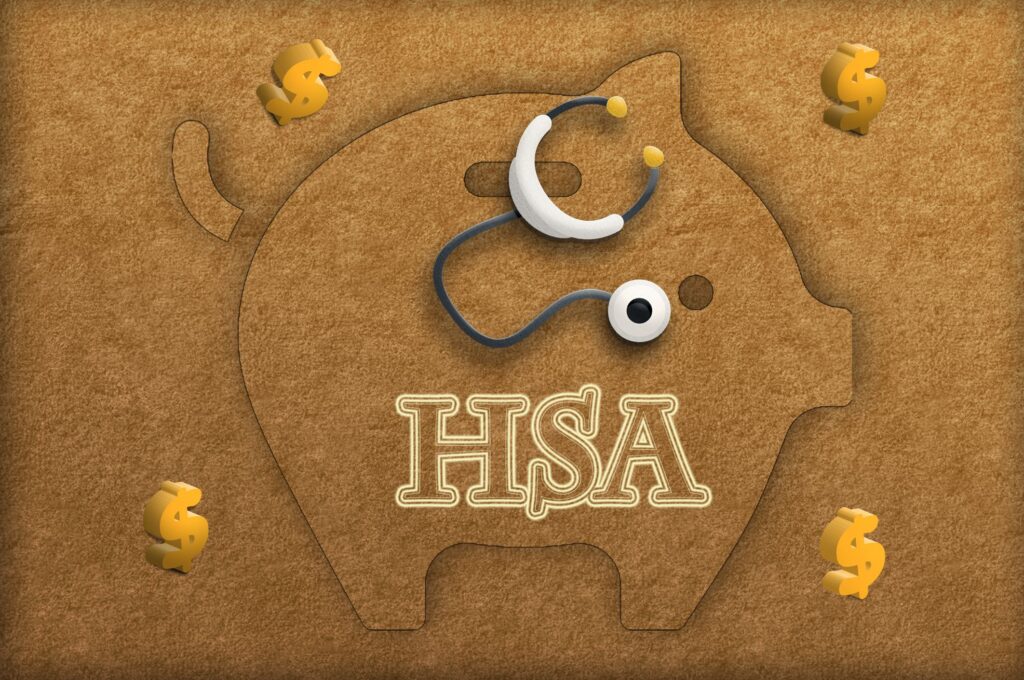Open enrollment season is here, bringing with it the annual rush of decisions about health insurance and related benefits. For many, one option often rises above the rest: the Health Savings Account (HSA).
Why? Because of the HSAs’ so-called “triple tax advantage.” That includes pre-tax contributions, tax-free investment growth, and tax-free withdrawals for qualified medical expenses.
With such potentially significant tax advantages, opting in to an HSA might seem like an easy choice.
From just $107.88 $24.99 for Kiplinger Personal Finance
Be a smarter, better informed investor.
CLICK FOR FREE ISSUE
Sign up for Kiplinger’s Free Newsletters
Profit and prosper with the best of expert advice on investing, taxes, retirement, personal finance and more – straight to your e-mail.
Profit and prosper with the best of expert advice – straight to your e-mail.
However, some situations may make an HSA less than ideal for you or your family, despite its tax benefits. Curious? Here’s more of what you need to know.
How do Health Savings Accounts work?
An HSA is a special savings account that allows you to pay for qualified medical expenses with pre-tax dollars. You can only open a health savings account if you’re enrolled in a high-deductible health plan (HDHP) — meaning you’ll pay more out of pocket before insurance kicks in.
You (and sometimes your employer) can deposit money into the account, and that money can be used tax-free for expenses like doctor visits, prescriptions, or even dental and vision care.
The balance rolls over from year to year, and you keep the account even if you change jobs or retire.
As mentioned, a main appeal is the triple tax advantage:
- HSA contributions are tax-deductible
- Growth is tax-free, and
- Withdrawals for eligible expenses are also not taxed.
However, while HSAs can be a powerful way to save on healthcare costs, they may not be the best fit for every health plan or budget. Here are some key reasons why.
‘Hidden costs’ of High-Deductible Health Plans
To qualify for an HSA, you have to have a high-deductible health plan (HDHP). That means trading lower monthly premiums for higher out-of-pocket costs. (Because HSAs pair with HDHPs, you’ll pay more out of pocket before insurance starts covering expenses.)
- If you don’t have enough saved yet, those upfront costs can be tough to manage.
- The high-deductible, higher-risk paradigm means you’ll need to cover more upfront costs before insurance kicks in, which can strain your cash flow if medical needs arise.
- You might not see enough savings to offset the higher deductible.
That structure can be challenging for people with chronic conditions, ongoing prescriptions, or families with ongoing medical needs, or those who expect high medical costs early in the year.
Studies from the National Bureau of Economic Research (NBER) note that while HSAs incentivize consumer-driven health spending, they also disproportionately affect chronically ill patients and lower-income individuals.
The Kaiser Family Foundation reports that “premiums for HSA-qualified health plans may be lower than for traditional insurance, but these plans shift more of the financial risk to individuals and families through higher deductibles.”
Conversely, if you rarely have medical expenses, the potential deductions may not outweigh the higher deductible or plan limits.
And from a tax perspective, if you find yourself pulling from your HSA for regular health bills, you miss out on tax-free investment growth. As mentioned, for many, the compounding aspect is a large part of the HSA’s appeal.
Frequent HSA withdrawals undercut long-term growth
Some people understandably end up using their HSA dollars every year just to cover doctor visits or medications. But each withdrawal means less money stays invested, which not only reduces future tax-free growth but can also undermine the “retirement account” aspect HSAs aspire to offer.
If you’re in that boat, the account can sometimes feel like more of a glorified checking account than a tax-optimized investment vehicle.
Limited HSA contributions mean limited tax benefits
Much of the power of an HSA is realized when you can contribute a meaningful amount each year and, ideally, leave those funds invested for a significant period.
Note: The IRS sets annual contribution limits for these accounts.
Here are the 2025 and 2026 contribution limits for individuals and families, including the catch-up amount for those aged 55 and older:
HSA Contribution Limits
Swipe to scroll horizontally
Coverage Type
2025 Limit
2026 Limit
55+ Catch-Up (Both Years)
Individual/Self
$4,300
$4,400
$1,000
Family
$8,550
$8,750
$1,000
These limits apply to the total contributions from both individuals and employers combined. The catch-up contribution allows individuals 55 or older (not yet enrolled in Medicare) to contribute an additional $1,000 each year.
Still, if you can’t afford to contribute much because of, for example, tight household finances, other priorities, like debt repayment or just the higher out-of-pocket costs that come with a high-deductible health plan, can also effectively shrink the tax benefits of an HSA.
- That is because HSAs essentially reward those who can maximize contributions.
- The tax deduction for putting money in is only substantial if you’re actually making full or near-full contributions.
Higher earners, or those with substantial disposable income, can often reap significant tax benefits, while others may see less substantial tax breaks.
Other factors can undermine the “triple tax” HSA promise
(Image credit: Getty Images)
Account fees and investment limits: Some providers require keeping a minimum cash balance or charge fees that can erode some of your gains, particularly if your HSA balance is low.
As Kiplinger has reported, former Consumer Financial Protection Bureau (CFPB) director Rohit Chopra has said, “HSAs may appear beneficial due to tax advantages, but many consumers underestimate the hidden costs, including account fees, complexity, and the challenge of high deductibles that can hinder access to care.”
Medicare eligibility and job changes: Even though the HSA remains yours even if you switch jobs, turning 65 or switching to a non-HDHP (including many employer plans) means you can’t make new HSA contributions to that account. That could hinder your future potential for tax-advantaged savings.
Recordkeeping demands and early withdrawal penalties: Managing an HSA requires careful recordkeeping to document eligible medical expenses. Additionally, if funds are withdrawn for non-qualified purposes before age 65, the amount is taxed as ordinary income and subject to a 20% penalty. For those who may need easier access to their savings, this lack of flexibility can limit the practicality of the account’s “triple tax” advantage.
Preference for predictable costs. Some people would rather pay higher premiums each month in exchange for lower, more predictable costs when they need care. An HSA plan can feel risky if you want that stability.
Employer coverage advantages with other plan options. If your job offers another plan with low copays and strong employer coverage, that option might save you more overall than an HSA-linked plan.
Downsides of an HSA: Bottom line
An HSA can be a powerful tool, especially for those who can consistently contribute and let their savings compound over many years while covering high upfront medical costs out of pocket.
If that doesn’t fit your financial life or if frequent withdrawals, high expenses, or modest contributions are part of your reality, the tax perks of an HSA might seem minimal.
As open enrollment continues, it’s worth running the numbers on whether you’ll reap the tax benefits of an HSA will or if you’re better off (even if only temporarily) focusing on another health plan option.

